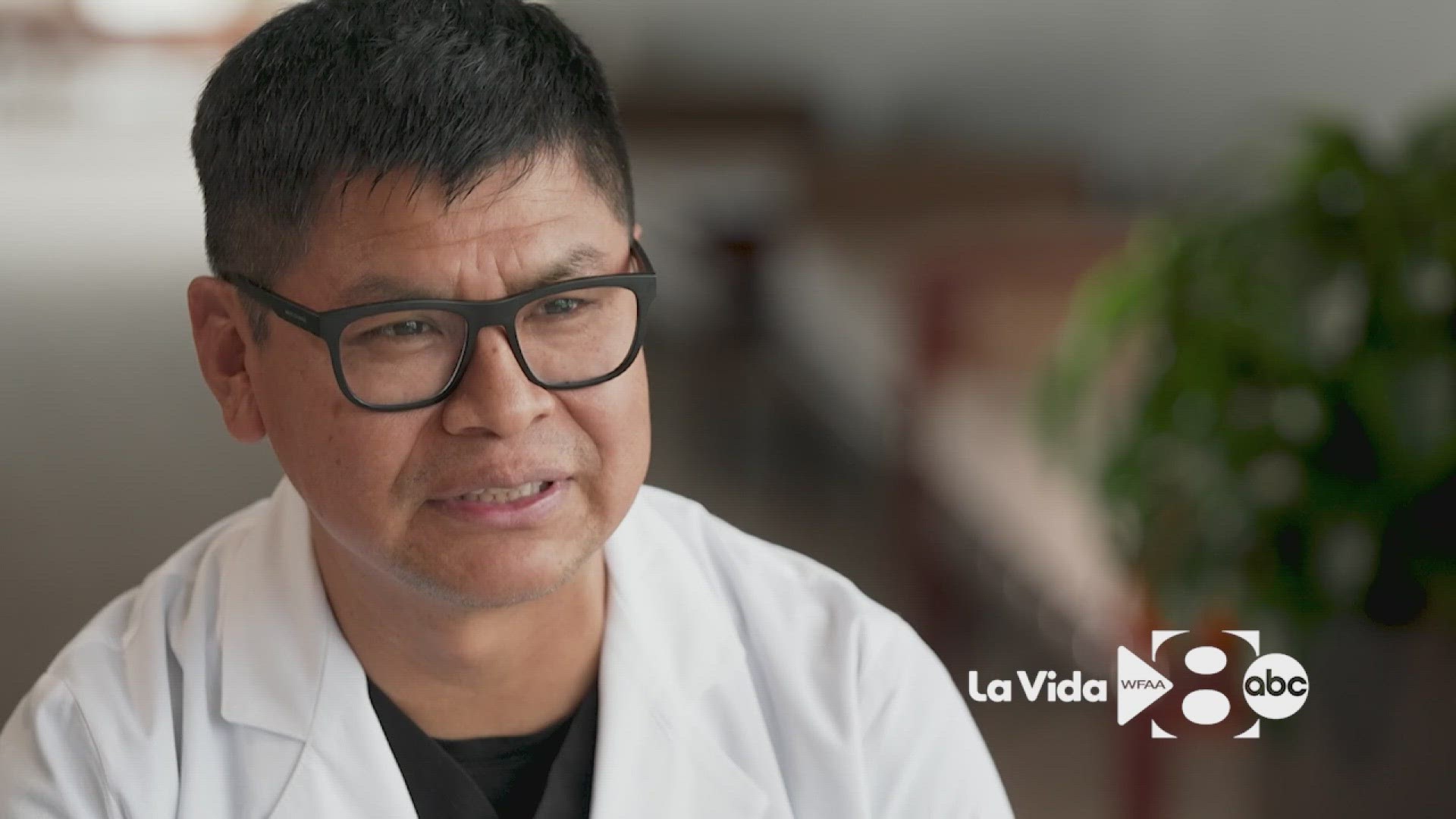DALLAS — Wayne Germano is from El Paso and comes to Baylor Scott & White Heart and Vascular Hospital in Dallas once a month for check-ups. It's been eight months since his heart transplant in late July. He had a number of other medical options but it was a special connection that brought him to Dallas.
"My wife is from a little jungle town in Peru, and [the doctor] is from a little jungle town about two hours north of where hers is," said Germano.
Germano and his wife were made aware of the Hispanic Cardiovascular Institute at Baylor and Doctor Aldo Rafael. According to their website, the institute "understands the cultural dynamics of the Hispanic population, including the importance of incorporating language, family and religion in medicine.
"We consider ourselves family. But this connection, this feeling, is stronger when you meet with someone from your own country," said Rafael, cardiac surgeon and medical director for the institute.
The institute was first started in 2020 after Dr. Rafael noticed he was getting a lot of referrals. He told WFAA the referrals for cardiac surgery started coming monthly and that turned to daily.
"I was getting surgery referral patients just because I'm Hispanic," Dr. Rafael told WFAA.
Rafael and his colleagues came up with the idea of starting the institute to help break barriers, encourage outreach, and serve an underserved population.
"They feel more confident. They feel more approachable when they find somebody who speak the same language like them," he said.
Rafael tells WFAA that a staggering 42% of Hispanic women and 52% of Hispanic men die of cardiovascular disease. Germano received his new heart one week after being put on the list. Early last year, he was feeling lethargic, had edema in his legs, and could not even go down the stairs.
"I registered Thursday. I got a call on Monday, and I was here on Tuesday. I've got a new engine in an old Porsche. The engine is good," Germano laughed.
Germano is thankful for the doctors and staff who have helped him through his medical journey. He's also thankful for the special relationships made through cultural connections.
The institute is doing what Dr. Rafael has always wanted to do: give back. Two years ago, Rafael was awarded Peruvian of the Year by the consulate.
The institute addresses a need for the fastest-growing population in the country and with the lowest access to healthcare.
Other headlines:

